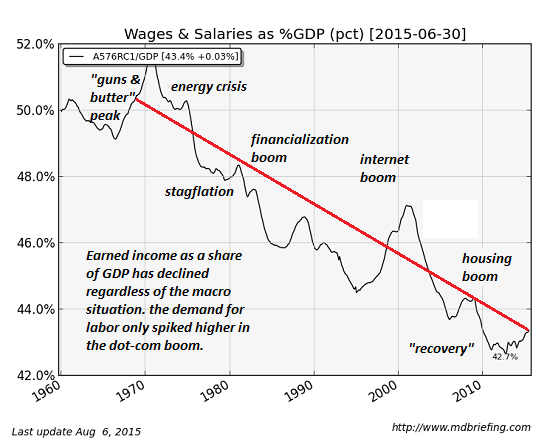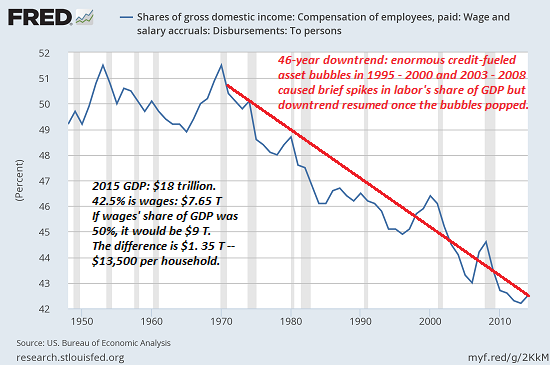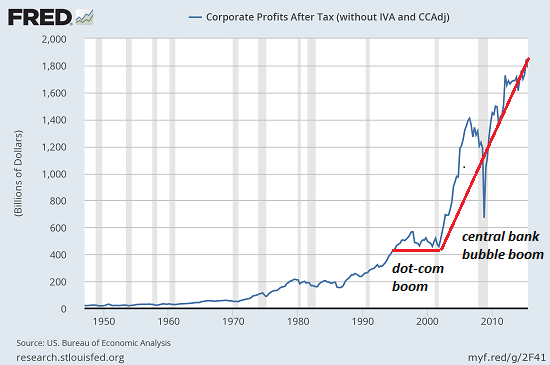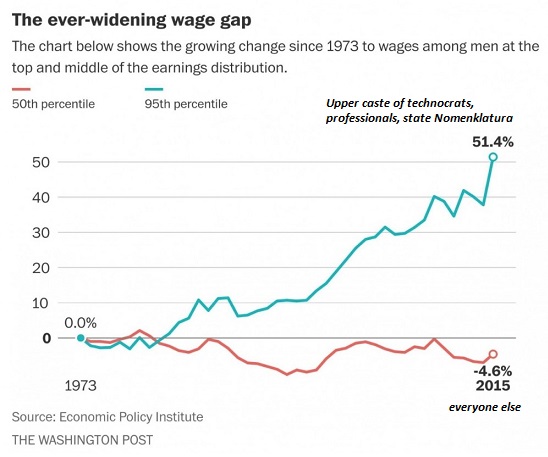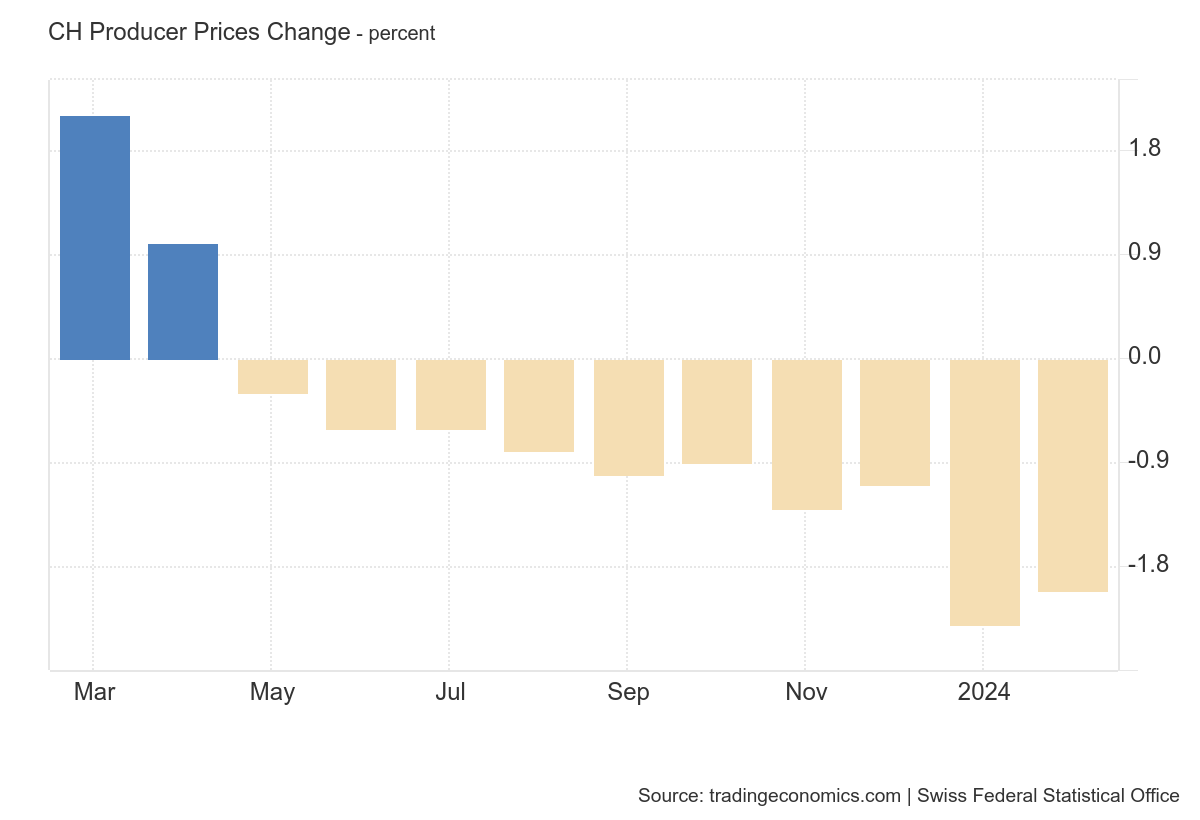Charles Hugh Smith combines the best graphs on the declining wage share of GDP in this post. He answers the question if the tax cuts and more federal borrowing and spending can solve what is broken in the U.S. economy.
Solutions abound, but not within our centralized state-cartel neofeudal system.
|
Not to rain on the new administration’s parade, but one question needs to be asked of any new administration: will tax cuts and more federal borrowing/ spending fix what’s broken in the U.S./global economy?
The short answer: if tax cuts and more federal borrowing/ spending were the cure for what ails the economy, we’d have reached Paradise long ago. Stripped of partisan politics and rah-rah, tax cuts and more federal borrowing/ spending–on infrastructure, education, defense, healthcare, you name it–have been the de facto status quo policies of both parties for the past 70 years.
Despite decades of these centralized, standard-issue Keynesian “fixes,” the economy’s structural ills are only getting worse. I outlined five of the most critical issues in What Have the “Experts” Gotten Right? In the Real Economy, They’re 0 for 5 (December 20, 2016).
|
|
|
Ultimately, two dynamics will dominate everything else: the paid work/earnings of non-elites and the transition from wasteful, debt-funded “growth” to a sustainable “Degrowth” economy.
45 years of Keynesian “stimulus”–tax cuts and federal borrowing/ spending–haven’t stemmed the decline of labor’s share of the economy (GDP). As these charts reveal, if labor’s share of the economy was still at 50% rather than 42%, households with earnings from work would be getting an astounding $1.35 trillion more per year.
This equates to an additional $10,800 per household, per year (there are roughly 125 million households in the U.S.) or about $100,000 per household per decade.
|
|
|
Would you be better off if your household had been paid an extra $100,000 in the 10 years since 2007? I am guessing the answer is “yes.”
Is it mere coincidence that while labor’s share of GDP declined by $1.35 trillion, corporate profits rose from $400 billion annually to $1.8 trillion? Garsh, do you reckon there’s a connection?
|
|
|
Another factor is the top 5%’s rising share of earnings. I call this the since I’m doing well, the economy is swell syndrome. The top 5% dominate the managerial class in the media, government, think tanks, foundations and corporate America, and from their perch high atop the centralized pyramid of wealth/power in America, things look just grand.
|
Tags: neofeudal system,newslettersent









